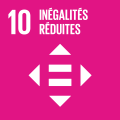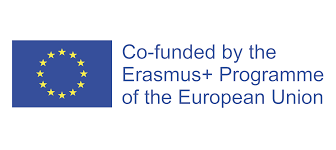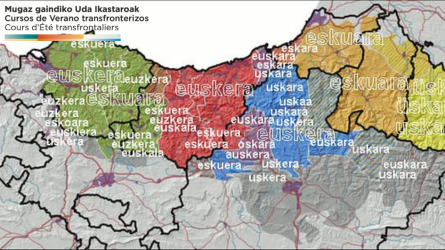
Hizkuntzen erabilera eta ikasketa hizkuntza gutxituekin bizikidetzan: inklusiorako mugarriak
Description
The main objective of this proposal is to publicise experiences and proposals that are promoting milestones for inclusion based on linguistic and cultural practices in different institutions on both sides of the border. These proposals can serve as a tool to laminate cross-border areas and to initiate cross-border research projects to build bridges between language and culture in the context of a minority language.
Understanding linguistic diversity as a key to inclusion can be enriching, fostering linguistic and cultural links and promoting respect for languages. On the path towards linguistic normalisation, in this case Basque, in a cross-border territory that has a long way to go, it is important to create spaces for exchange that allow us to learn, in a context of diversity, what kind of relationships need to be created while respecting the diversity of languages, so that Basque continues to advance in its normalisation process.
Likewise, the role of children, adolescents and young people in coexistence with minority languages is of vital importance. In order to encourage the use of languages, it is essential to promote spaces for participation and communication strategies, in line with motivation and attitude. It is also essential to evaluate and research these learning experiences, but through techniques adapted to children and adolescents. We will therefore focus on how we can integrate the inclusive approach in the research, interventions and projects we carry out and how to make the participants protagonists in these processes. This course will therefore focus on the aspects to be addressed from an inclusive perspective in order to give voice to the protagonists and promote language learning and use.
In short, we will present experiences of research and education with languages at school, analysing the challenges and good practices that are being carried out in this context. We would also like to be creative laboratories for new proposals for cross-border education and research.
Objectives
Hizkuntzen ikaskuntza eta irakaskuntza parte-hartze aktiboan oinarrituta mugaz bi aldeetan sustatu duten esperientziak ezagutzea, beraien mugaz gaindiko potentzialtasuna aztertuaz.
Hizkuntzen ikaskuntza eta irakaskuntza inklusiotik bultzatzeko tresnak eta baliabideak eskaintzea.
Ikerketetan, esku-hartzeetan eta burutzen ditugun praktiketan hizkuntz aniztasunaren ikuspegia txertatzeko bideak ezagutzea, bereziki hizkuntza gutxituetako testuinguruetan.
Hizkuntzen ikaskuntzak eta erabilerak mugaz gaindiko harremanak lantzeko dituen erronkak ezagutzea.
Activity directed to
- All public
- University student
- Students not from university
- Teachers
- Professionals
Directors
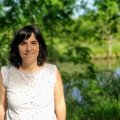
Nahia Idoiaga Mondragon
UPV/EHU
Dr. Nahia Idoiaga Mondragon holds the PhD in psychology (with honour), degrees in psychology and educational psychology and two master’s degrees (Teachers Training & Research Methodology). Framed on social and educational psychology she has researched and published impact articles on topics related to socio-educational inclusion, education, feminism and health. In the field of research, she is part of the research group KideON. She is also part of several projects, most of them European funded, working on the inclusion of young people and vulnerable groups. At a teaching level, she is proffesor in the Department of Evolutionary Psychology and Education and in her teaching subjects is implementing IKD methods (problem based learning and dynamic and cooperative learning). In addition, she is PhD. Co- director enrolled in the Doctorate programmes in Psychology and Psychodidactics at the UPV/EHU. She is also Vice-Dean of Undergraduate, Postgraduate and Final Degree Projects at the Faculty of Education in Bilbao.

Idoia Legorburu Fernandez
Euskal herriko unibertsitatea
Speakers
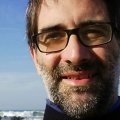
Israel Alonso Sáez
Universidad Del País Vasco
Dr. Israel Alonso Sáez holds the PhD in Pedagogy (with honour), degrees in Social Education and Pedagogy and one master’s degree (Special Education). Since 2011 she works in the Department of Didactics and School Organization in the Degree in Social Education and Teaching. Previously, he has worked as an Educator in the intervention and coordination of social projects with excluded people. He has participated in several teaching innovation projects related to interdisciplinary learning and tutorial action. And also in twon R + D + I projects of the MINECO and two Erasmus research projects related with youth and child inclusion being co-principal investigator. He is member of “KideOn” Research Group of the Basque Government (Ref.: IT1342-19 / “A” category). He has also worked as a visiting professor at the Universities of Italy, French, Ecuador and Chile.
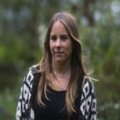
Naiara Berasategi Sancho
Universidad del País Vasco
Graduated in Primary Education, Master in Special Education, Sociologist, Politologist and Doctor with international mention from the University of the Basque Country. Since 2007 he works in the Department of Didactics and School Organization in the Degree of Social Education and Teaching. He has teaching and research experience in various subjects related to the field of social and educational inclusion, specifically in the immigrant population, youth and children, women, the elderly and people with special educational needs. He has previously worked on the design and evaluation of quantitative and qualitative projects. He has done several educational innovation projects related to interdisciplinary learning and tutorial action. And also in MINECO R&D projects and Erasmus and University Society (UPV/EHU) research projects being co-principal investigator. He has also made stays as a visiting professor at the University of Reno-Nevada, University of Malta and University Collegue Dublin
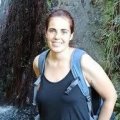
Amaia Eiguren Munitis
Bilboko Hezkuntza Fakultatean Didaktika eta Eskola Antolakuntza Saileko irakaslea (Leioa, UPV/EHU). Euskal Herriko Unibertsitatean (UPV/EHU) Doktorea da eta baita Gizarte Langintzan diplomatua (2015), Irakaslea Lehen Mailako Heziketa Espezializazioarekin (2013) eta Gizarte Hezkuntzan Graduatua (2017) . Bere ikerketa arloa belaunaldi arteko harremanak dira nagusiki baita haur eta helduen ongizatea ere. Gizarte Hezitzaile bezala esperientzia luzea kolektibo desberdinekin, gehien bat zaurgarritasun eta babesgabetasun egoeran dauden haurrekin.

Soha El Jammal

Urtzi Etxeberria Otaegi
CNRS-IKER

Nahia Idoiaga Mondragon
UPV/EHU
Dr. Nahia Idoiaga Mondragon holds the PhD in psychology (with honour), degrees in psychology and educational psychology and two master’s degrees (Teachers Training & Research Methodology). Framed on social and educational psychology she has researched and published impact articles on topics related to socio-educational inclusion, education, feminism and health. In the field of research, she is part of the research group KideON. She is also part of several projects, most of them European funded, working on the inclusion of young people and vulnerable groups. At a teaching level, she is proffesor in the Department of Evolutionary Psychology and Education and in her teaching subjects is implementing IKD methods (problem based learning and dynamic and cooperative learning). In addition, she is PhD. Co- director enrolled in the Doctorate programmes in Psychology and Psychodidactics at the UPV/EHU. She is also Vice-Dean of Undergraduate, Postgraduate and Final Degree Projects at the Faculty of Education in Bilbao.

Mari Lagan

Idoia Legorburu Fernandez
Euskal herriko unibertsitatea
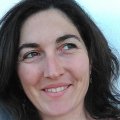
Marie Pourquié Bidegain
IKER
Esta neuropsicolingüista (Baiona, Lapurdi, 1982) es licenciada en Filología Vasca (Baiona-UPV/EHU Vitoria/Gasteiz ), licenciada y máster en Ciencias del Lenguaje (Paris). Master y Doctorada en neurolingüística y afasiología en la Universidad Le Mirail (Toulouse, Francia, 2011). Continuó su formación postdoctoral en la Escuela de ortofonía de Montreal (Canadá), y en los centros de investigación BCBL de Donostia e IKER de Baiona. En la actualidad, trabaja en el ámbito de la lingüística clínica y la psicolingüística aplicada, en el desarrollo de instrumentos para la detección de trastornos del lenguaje de individuos euskaldunes y multilingües, en colaboración con grupos de investigación del País Vasco, de Europa, y de fuera de Europa.

Amaia Rodriguez Aguirre
UBM-IKER-EHU
Asier Romero holds a degree (1997) and Ph.D. (2005) in Hispanic Philology by the University of Deusto. He is professor since 2006 at the Faculty of Education of Bilbao (UPV/EHU). He has been Deputy Director of Practices of the University School of Teaching of Bilbao (2011-2013); coordinator of the Department of Language and Literature Didactics (2016-2018) and he is Dean of the Faculty of Education of Bilbao since 2018. He directs the EUDIA research group (group B of the Basque university system). He has directed a doctoral thesis, 34 TFG and 17 TFM. He has been a visiting professor at the Central University of Chile. He has participated in 8 research projects, being in two of them the main researcher. He is co-author of 75 scientific articles, 8 books and 18 book chapters; and he has about 50 contributions in national and international congresses. He has 2 six-year periods on research work recognized by the national committee for the assessment of the research action (CNEAI).

Egoitz Urrutikoetxea
Registration fees
| Face-to-face | Until 17-07-2024 |
|---|---|
| 0 EUR |
| Live online | Until 17-07-2024 |
|---|---|
| 0 EUR |
Venue
Aquitaine
Aquitaine
Sustainable development goals
Agenda 2030 is the new international development agenda approved in September 2015 by the United Nations. This agenda aims to be an instrument to favour sustainable human development all over the planet, and its main pillars are the eradication of poverty, a reduction in equality and vulnerability and fostering sustainability. It is a unique opportunity to transform the world up to 2030 and guarantee human rights for all.

4 - Quality education
Guarantee quality education that is inclusive and equitable and foster opportunities for lifelong learning for everyone. Key issues: free-of-charge, equitable and quality education, access to higher education and training on an equal basis, education for sustainable development, suitable education centres for persons with disabilities, and safe, non-violent and efficient learning environments.
More information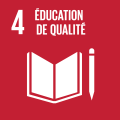
10 - Reduced inequalities
Reduce inequality in countries and between them. Key issues: promotion of the social, economic and political inclusion of all people, equal opportunities, fiscal, wage and social protection policies to favour equality, migration and the policies that affect it, official assistance for the development, regulation and supervision of world institutions and markets.
More information